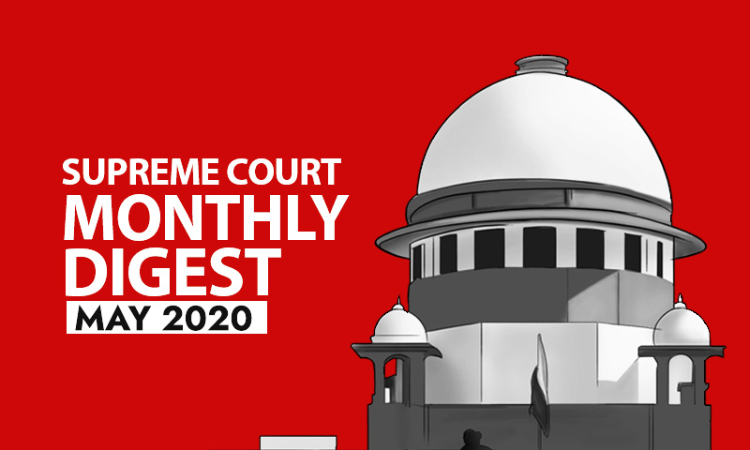- Home
- /
- Top Stories
- /
- Supreme Court Monthly Digest: May...
Supreme Court Monthly Digest: May 2020
Akshita Saxena
29 July 2020 10:39 AM IST
1. 'Common Parlance', 'Popular Meaning', 'Marketability' Tests Applicable Only If Tariff Entry Classifiable In More Than One Head: SC Order dated May 1, 2020 The division bench of Justices Deepak Gupta and Aniruddha Bose dismissed the Delhi Central Excise Commissioner's appeals against the 2008 decision of the CESTAT holding that "car matting" would be chargeable to duty at 8%...
Next Story



